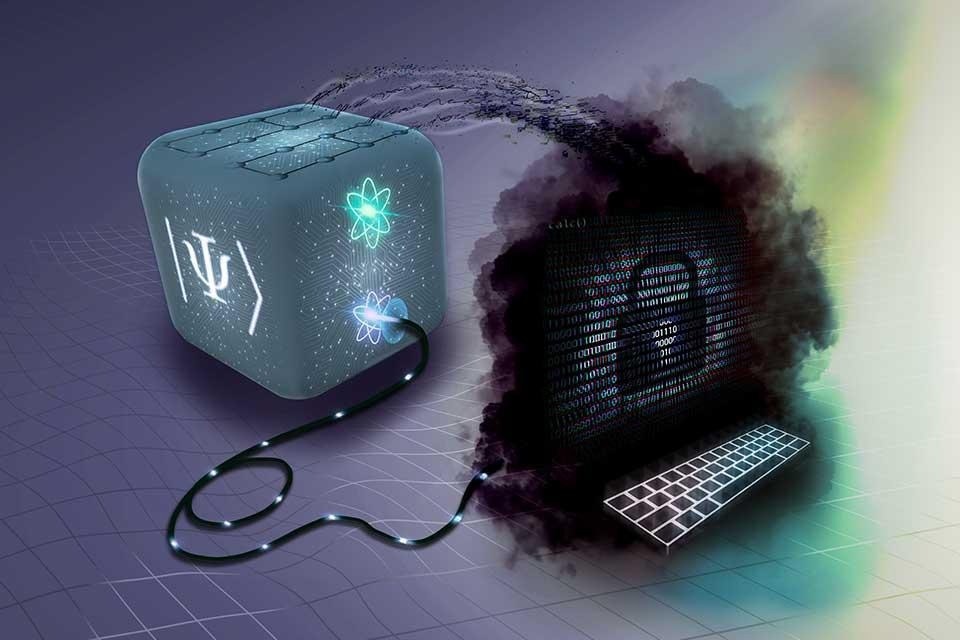Scientists at Oxford's Department of Physics have made a significant breakthrough that could soon allow millions of individuals and companies to harness the full power of next-generation quantum computing with guaranteed security and privacy. This breakthrough, which is described in a new study published in Physical Review Letters, has the potential to unleash the revolutionary power of cloud-based quantum computing.

Image Credit: Oxford University Physics
Quantum computing is advancing quickly, creating potential for transformative applications in various sectors, including healthcare and financial services. Unlike conventional computing, quantum computing operates on fundamentally different principles and offers significantly greater power. However, it currently necessitates controlled environments in specialized centers. This requirement has sparked concerns about the authenticity of data and the effectiveness of existing security and encryption systems.
Several leading cloud service providers, including Google, Amazon, and IBM, already offer components of quantum computing. Ensuring the privacy and security of customer data is crucial before quantum computing can be scaled up and further applications developed as the technology progresses. The latest study addresses these important challenges.
We have shown for the first time that quantum computing in the cloud can be accessed in a scalable, practical way which will also give people complete security and privacy of data, together with the ability to verify its authenticity.
David Lucas, Professor, University of Oxford
In their recent study, researchers have utilized an approach called 'blind quantum computing,' which securely links two completely independent quantum computing entities—potentially an individual at home or in an office with a cloud server. Crucially, their new methods have the potential to be scaled up for large quantum computations.
The researchers developed a system that includes a fiber network link between a quantum computing server and a simple device at an independent computer that detects photons and accesses its cloud services remotely. This setup enables what is known as blind quantum computing across a network.
Each computation requires a correction that affects all subsequent computations, necessitating real-time information to adhere to the algorithm. To accomplish this, the researchers employed a unique combination of quantum memory and photons.
“Using blind quantum computing, clients can access remote quantum computers to process confidential data with secret algorithms and even verify the results are correct, without revealing any useful information. Realizing this concept is a big step forward in both quantum computing and keeping our information safe online.
Dr. Peter Drmota, Postdoctoral Research Assistant, University of Oxford
Lucas added, “Never in history have the issues surrounding privacy of data and code been more urgently debated than in the present era of cloud computing and artificial intelligence. As quantum computers become more capable, people will seek to use them with complete security and privacy over networks – our new results here mark a step change in capability in this respect.”
The research was funded by the UK Quantum Computing and Simulation (QCS) Hub, with collaboration among scientists from the UK National Quantum Computing Centre, Paris-Sorbonne University, the University of Edinburgh, and the University of Maryland.
Journal Reference:
Drmota, P., et al. (2024) Verifiable Blind Quantum Computing with Trapped Ions and Single Photons. Physical Review Letters. doi:10.1103/PhysRevLett.132.150604